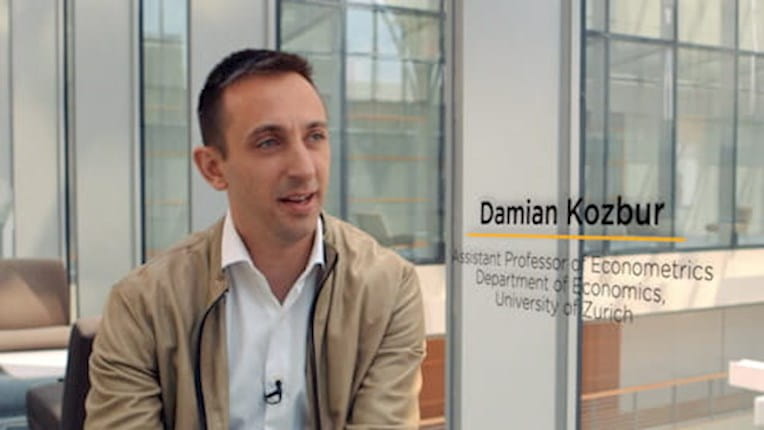Scholarly Publications
Our PhD students' research has been published in top journals including Econometrica, Journal of Royal Statistical Society, Journal of Econometrics, Neural Information Processing Systems and Journal of Machine Learning Research. Below is a recent list of publications and working papers authored by our PhD students.
Modeling Tail Index with Autoregressive Conditional Pareto Model
Zhouyu Shen, Yu Chen and Ruxin Shi, Journal of Business and Economic Statistics, (40) 2022
Online Learning to Transport via the Minimal Selection Principle
Wenxuan Guo, YoonHaeng Hur, Tengyuan Liang, Chris Ryan, Proceedings of 35th Conference on Learning Theory (COLT), (178) 2022
FuDGE: A Method to Estimate a Functional Differential Graph in a High-Dimensional Setting
Boxin Zhao, Samuel Wang and Mladen Kolar, Journal of Machine Learning Research, (23) 2022
Approximate Bayesian Computation via Classification
Yuexi Wang, Tetsuya Kaji and Veronika Rockova, Journal of Machine Learning Research (In press), 2022
Reversible Gromov-Monge Sampler for Simulation-Based Inference
YoonHaeng Hur, Wenxuan Guo and Tengyuan Liang, Journal of the American Statistical Association (R&R). 2021.
Data Augmentation for Bayesian Deep Learning
Yuexi Wang, Nicholas Polson and Vadim Sokolov, Bayesian Analysis (In press), 2022
Pessimism Meets VCG: Learning Dynamic Mechanism Design via Offline Reinforcement Learning
Boxiang Lyu, Zhaoran Wang, Mladen Kolar and Zhuoran Yang, In Proceedings of the 39th International Conference on Machine Learning (ICML), (162) 2022
Optimal Estimation of Gaussian DAG Models
Ming Gao, Wai Ming Tai and Bryon Aragam, International Conference on Artificial Intelligence and Statistics (AISTATS), (151) 2022
Multivariate Change Point Detection for Heterogeneous Series
Yuxuan Guo, Ming Gao, and Xiaoling Lu, Neurocomputing, (510) 2022
Disentangling Autocorrelated Intraday Returns
Rui Da and Dacheng Xiu, Journal of Econometrics (R&R), 2021
When Moving-Average Models Meet High-Frequency Data: Uniform Inference on Volatility
Rui Da and Dacheng Xiu, Econometrica, (89) 2021
Efficient Bayesian Network Structure Learning via Local Markov Boundary Search
Ming Gao and Bryon Aragam, Advances in Neural Information Processing Systems (NeurIPS), (34) 2021
Structure Learning in Polynomial Time: Greedy Algorithms, Bregman Information, and Exponential Families
Goutham Rajendran, Bohdan Kivva, Ming Gao and Bryon Aragam, Advances in Neural Information Processing Systems (NeurIPS), (34) 2021
Variable Selection with ABC Bayesian Forests
Yi Liu, Yuexi Wang and Veronika Rockova, Journal of the Royal Statistical Association: Series B, (83) 2021
A Polynomial-time Algorithm for Learning Non-parametric Causal Graphs
Ming Gao, Yi Ding, and Bryon Aragam, Advances in Neural Information Processing System (NeurIPS), (33) 2020
Uncertainty Quantification for Sparse Deep Learning
Yuexi Wang and Veronika Rockova, International Conference on Artificial Intelligence and Statistics (AISTATS), (2018) 2020
Direct Estimation of Differential Functional Graphical Models
Boxin Zhao, Samuel Wang and Mladen Kolar, Advances in neural information processing systems (NeurIPS), (32) 2019
The Effects of Economic Uncertainty on Financial Volatility: A Comprehensive Investigation
Chen Tong, Zhuo Huang, Tianyi Wang, and Cong Zhang, Journal of Empirical Finance (R&R), 2022

















